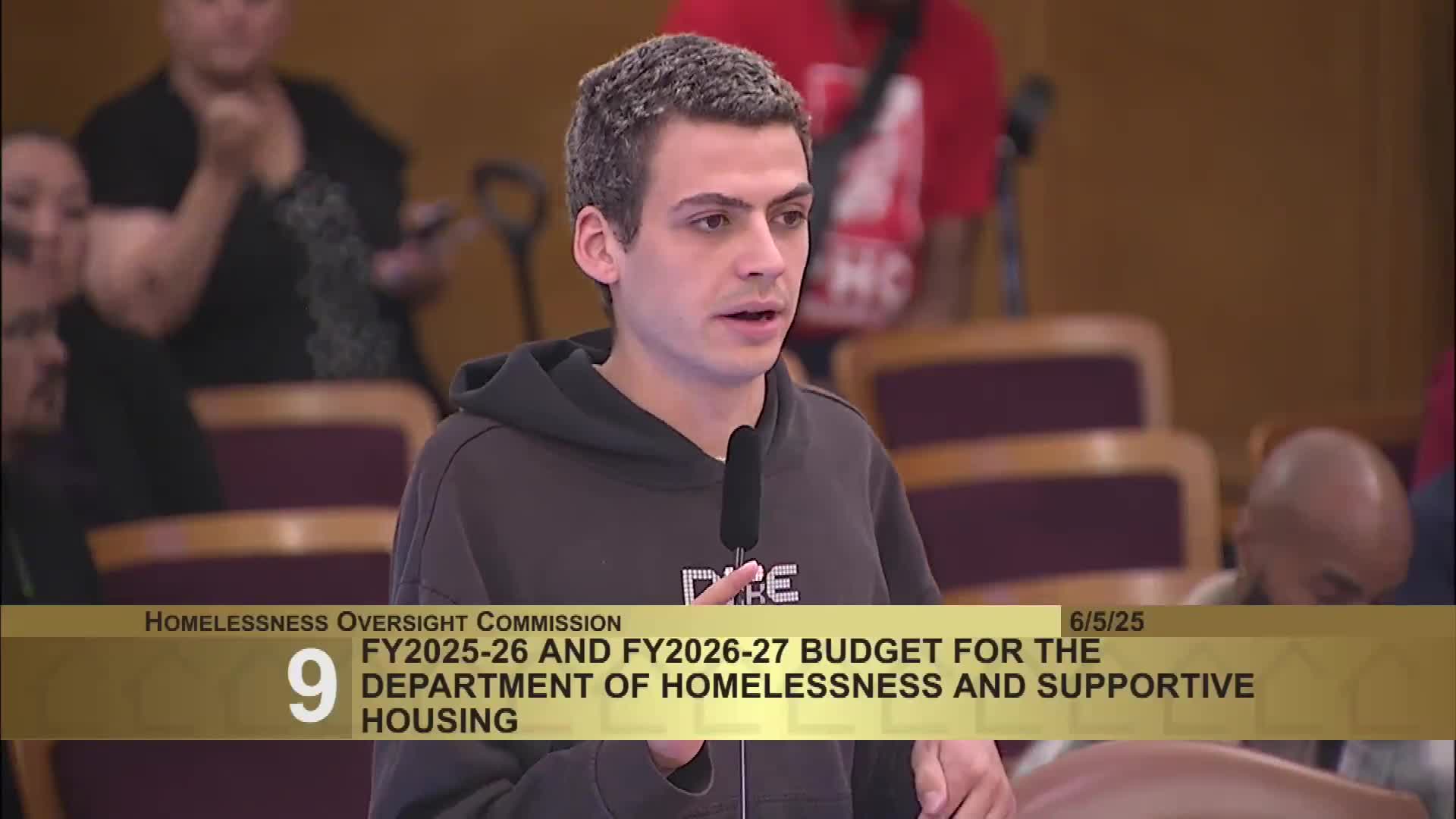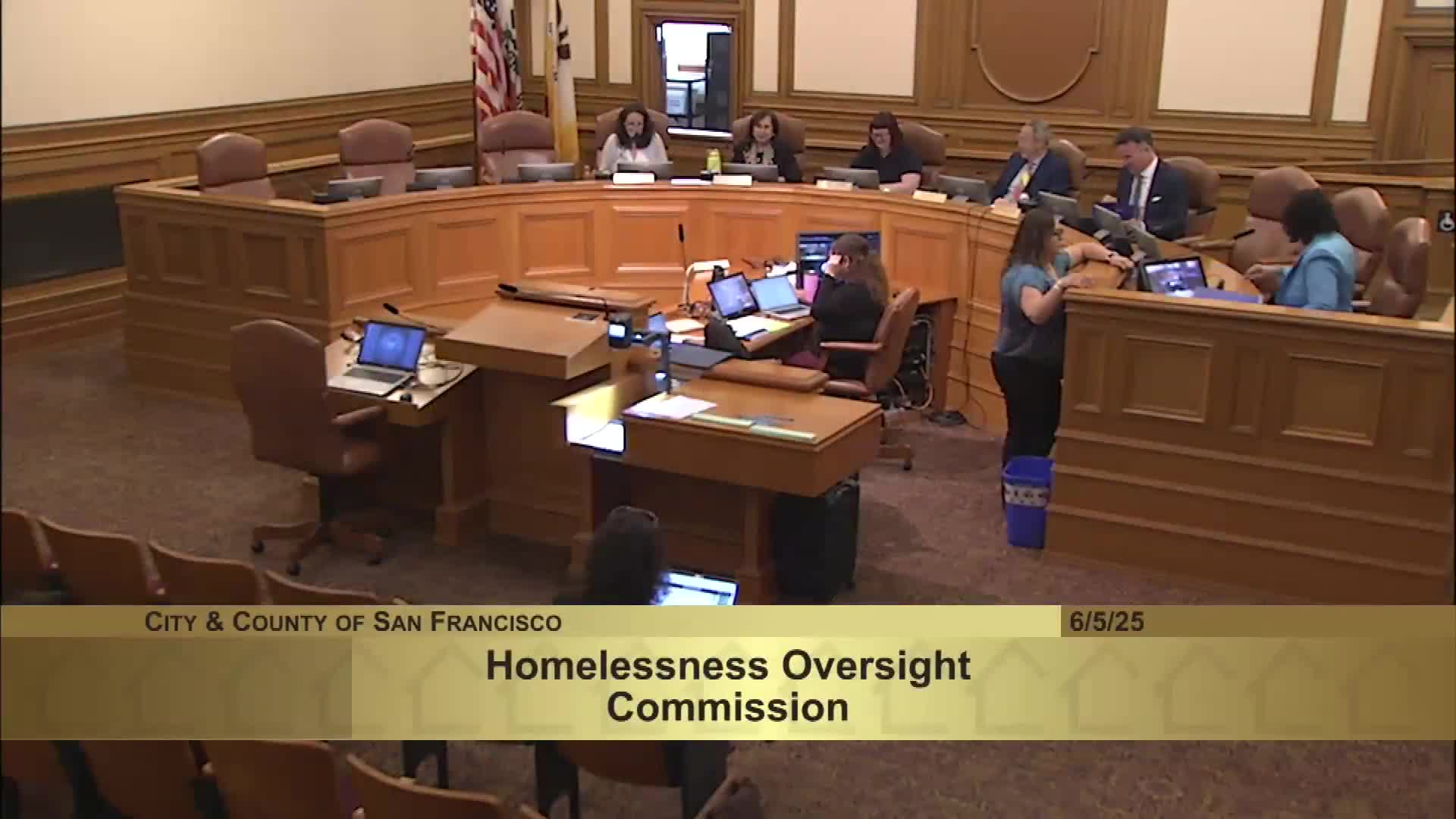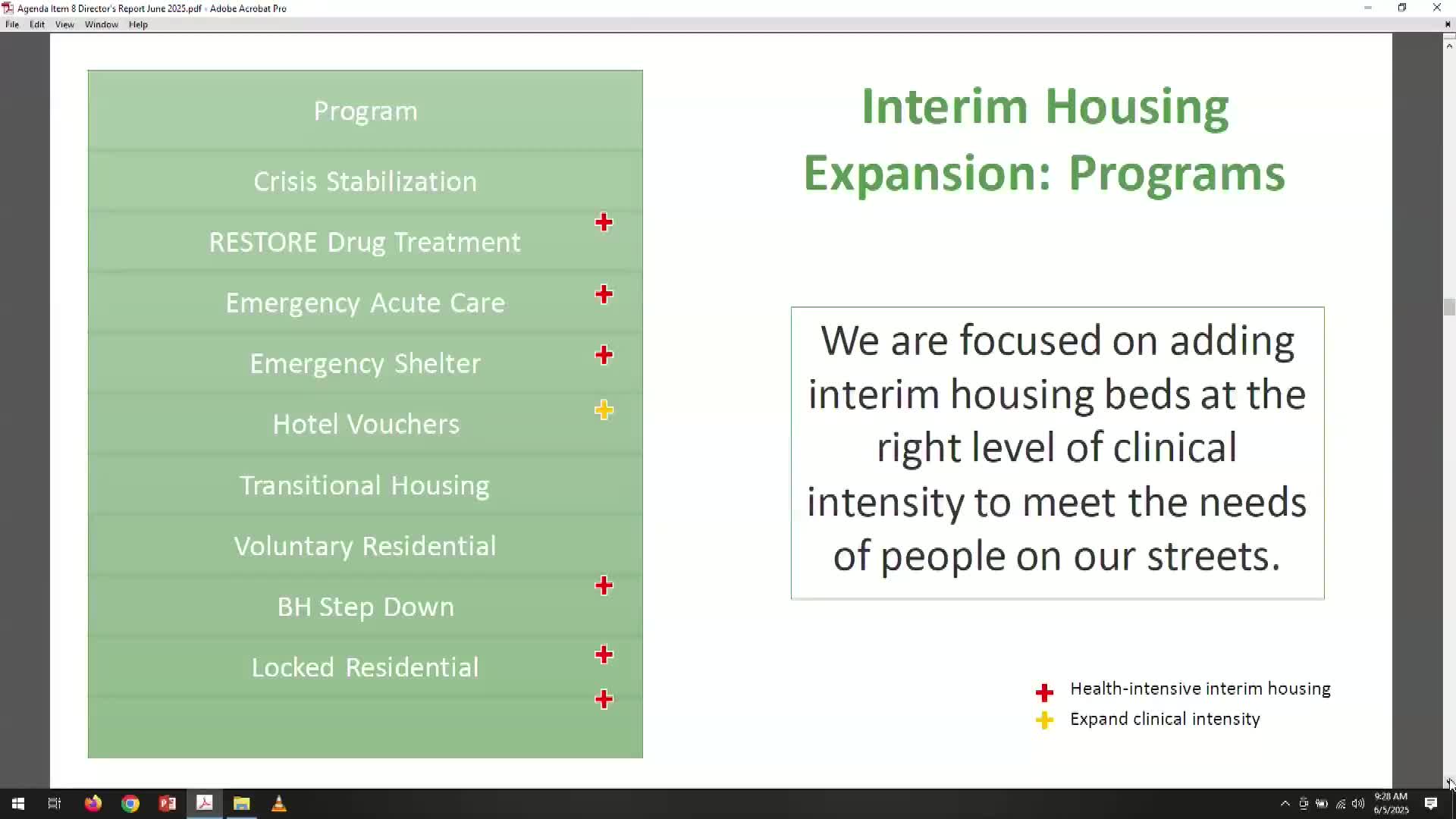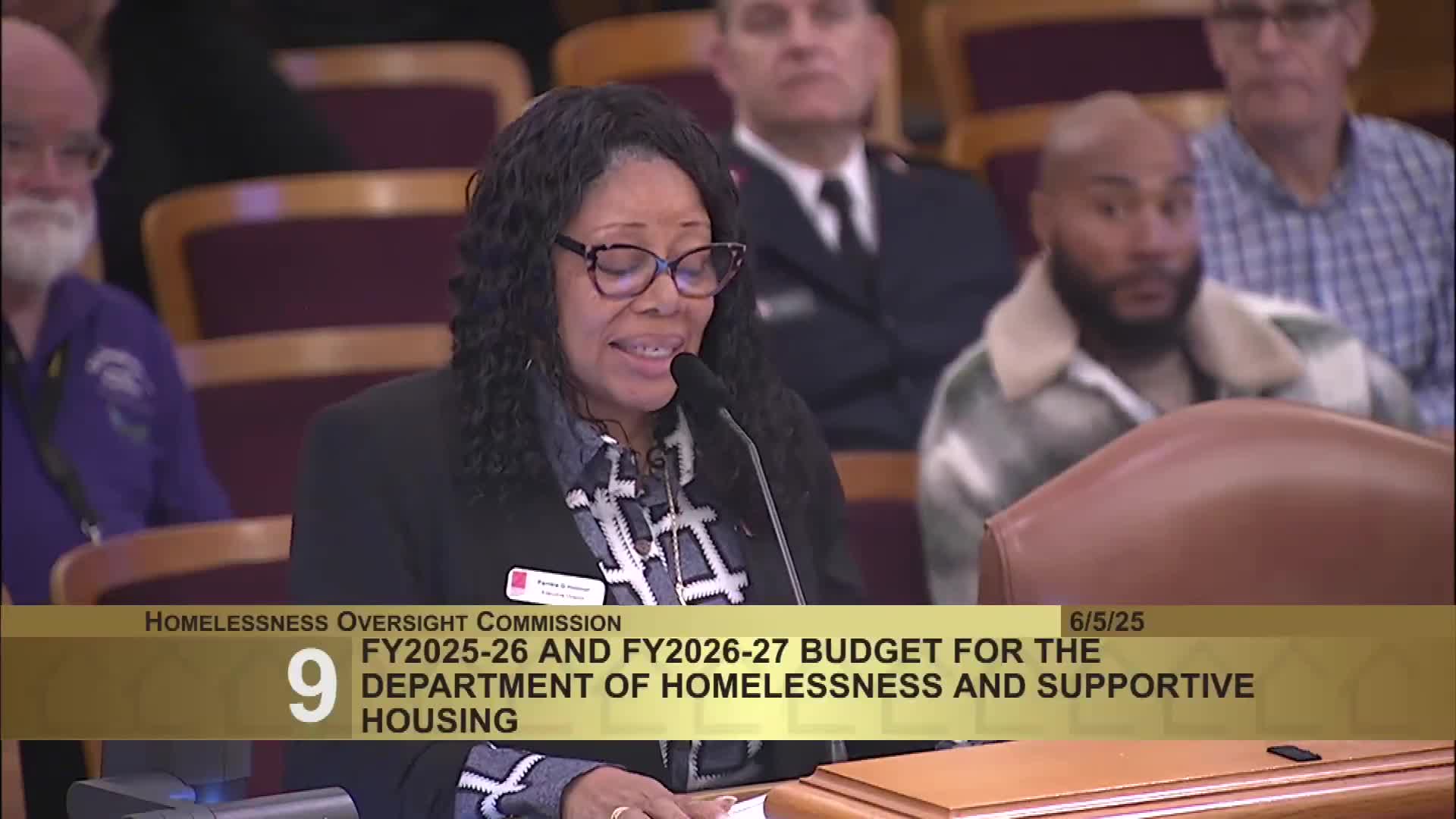Article not found
This article is no longer available. But don't worry—we've gathered other articles that discuss the same topic.

Commission approves contracts: rapid rehousing for TAY and families, shelter upgrades and data analytics; roll‑call votes all aye

San Francisco HSH outlines budget cuts, preserves shelter beds and pushes 'Breaking the Cycle' integration with public health

San Francisco outlines multi‑pronged strategy to address vehicular homelessness, including outreach task force and buyback pilot

